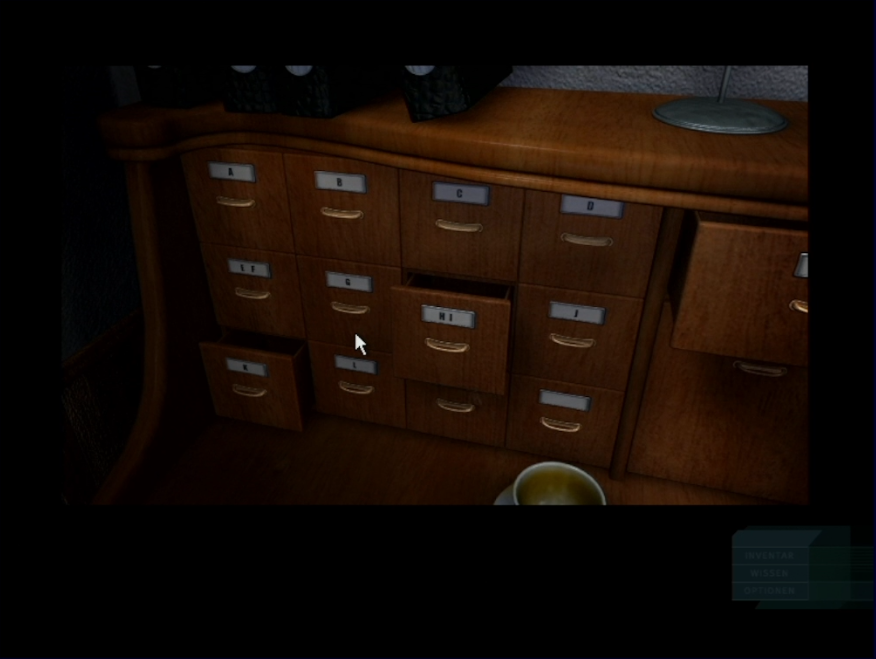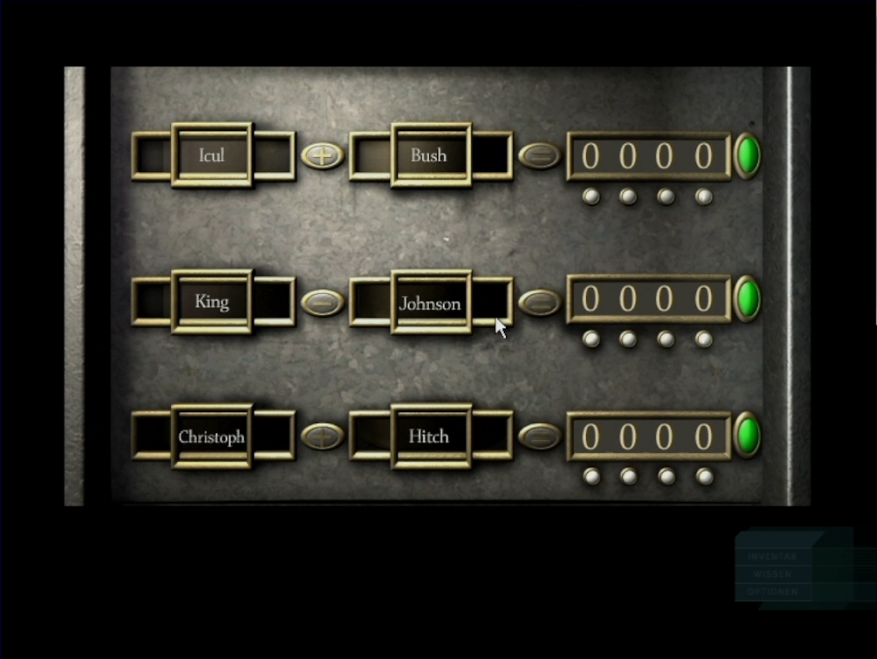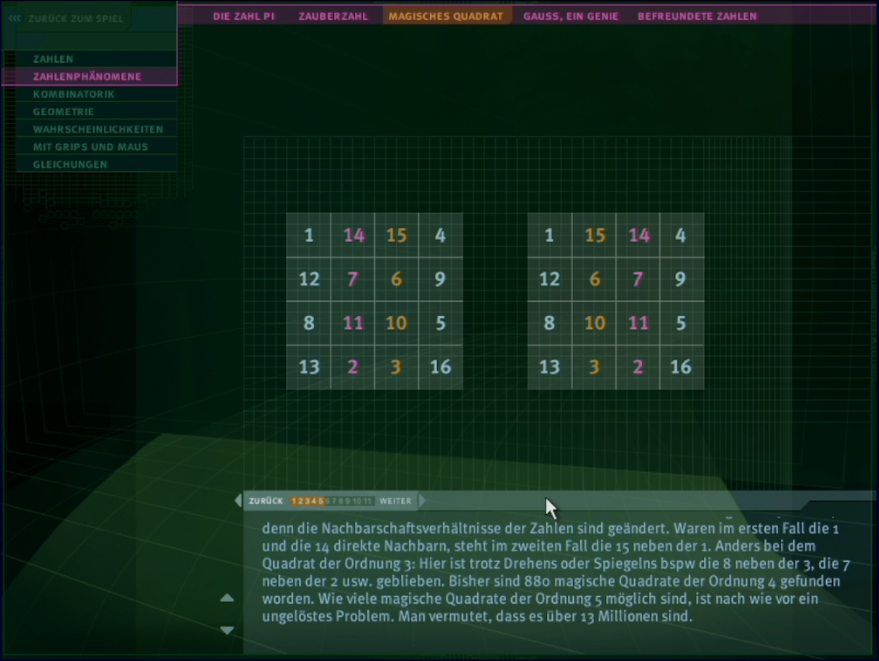Today we’re talking about a title from the Heureka-Klett series of educational games that I like so much. While in Physicus we had to solve a lot of puzzles involving, well, physics, Mathica is about math – that can only be a lot of fun, right?
In terms of gameplay, there isn’t much to say about Mathica: it’s a classic point & click adventure from the series of Heureka-Klett educational games, as Physicus. As such, it shares virtually all characteristics with it. We have to collect a lot of objects, but practically never combine them. We move through the world and solve puzzles, the principles of which are explained to us in a learning computer that we have access to at any time. And we experience a story that may not win any Oscars, but is still entertaining.

This game is about the village of Numberville. There lived a professor named “Numerus” who was obsessed his whole life with finding the last decimal place of pi. Since he couldn’t do it (since it’s impossible), he cursed his daughter “Mathica” to keep working on the solution – which obviously takes forever. So now we have to solve all the puzzles in Numberville to give her final proof that it’s not possible and break her father’s curse.
This story sounds and is a bit silly, but it’s definitely not the main reason to play this game. What actually really appealed to me was the mathematical challenges, which also reminded you of the principles you’ve learned back in school. I always find something like that very nice and interesting – many of you found it too (others not so much, somehow math separates minds…).

The game lets you apply a lot of different principles and solve puzzles, which I really liked. Similar to Physicus, everything is explained well; it is primarily a game for young people who are learning these things at school. The only point of criticism for me was that it was not clear in several places which principle should be applied – in physics it is quite easy to see what a transformer is and what a lever is. With a series of numbers it is not always immediately clear how it should continue. Unfortunately, there were a few places like this, and once we even had to consult the official walkthrough, which was a shame.
Unfortunately, we also had a bug at one point: a mouse that we had to collect only appeared once in one place. If you walk out of the scene and then back in, it’s gone. At this point we were able to learn at least a little bit about computer science by editing the save file, but the experience wasn’t ideal.
What struck me positively was that there was dialogue for the first time in this part. Physicus used tapes in both parts; here you could actually talk to people – these dialogues were very limited, but an interesting step in a new direction. I’m very curious to see how it’s resolved into the other parts, for example Chemicus.

Overall, though, I found it to be an entertaining game. We were able to free Mathica from her curse at the end and learned or remembered a few things in the process – that kind of nostalgia isn’t for everyone, but I really enjoyed it. It was quite entertaining and the puzzles were interestingly designed and well integrated into the environment, so they always led to a sense of achievement. I’m really looking forward to the next parts of the series!
What do you think? Did you find the game rather boring, interesting, or did it perhaps spark a new enthusiasm for mathematics in you? Have you even played the games yourself before? Join the discussion on Discord!